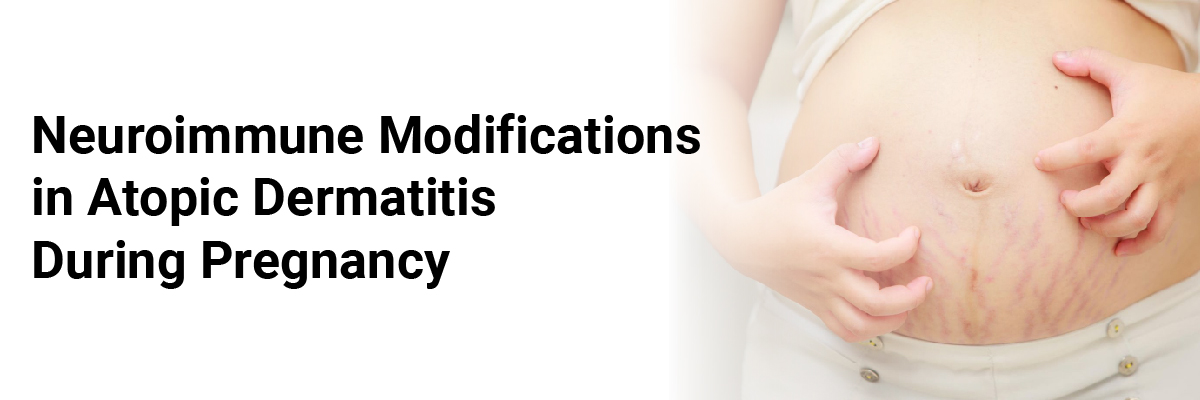
 IJCP Editorial Team
IJCP Editorial Team
Neuroimmune modifications in atopic dermatitis during pregnancy
A rise in the number of patients with atopic dermatitis (AD) among pregnant women is recorded annually. Yet, the pathogenesis of AD during pregnancy remains unclear. Exacerbations of AD during pregnancy demands in-depth study since, at the moment, there is a lack of uniform recommendations for the treatment and management of such patients. The present study investigated the role of cytokines (IL-31 and IL-33), neuropeptide-substance P (SP), and cortisol in the pathogenesis of AD during pregnancy before and after combined topical treatment.
It included 110 patients, including 70 pregnant women with exacerbation of AD, 20 - non-pregnant women with exacerbation of AD, and 20 - healthy pregnant women. A cohort of pregnant women with exacerbation of AD received combined therapy "emollient + topical antipruritic agent" for 30 days. The study assessed outcomes like control of symptoms and severity of AD (SCORAD index), IL-31 and IL-33, SP, and cortisol.
The study observed-
- No significant differences between the groups when assessing the severity of AD.
- Higher levels of IL-31, IL-33, cortisol, and SP in the group of pregnant women with exacerbation.
- A significant change in the SCORAD index, IL-31, IL-33, and cortisol, at the end of a 30-day course of treatment for exacerbation of AD during pregnancy with a combination of "emollient + topical antipruritic agent."
This study shows that AD exacerbation during pregnancy is accompanied by more pronounced changes in neuro-immunological parameters (IL-31 and IL-33, SP), as well as in the level of the stress hormone cortisol than in the control groups. Furthermore, the combination "emollient + topical antipruritic agent" is clinically efficient in eliminating the inflammatory skin process and contributes to a decrease in neuroimmune parameters.
Kandrashkina YA, Orlova EA. Neuroimmune changes in atopic dermatitis during pregnancy. Molecular medicine. 2022;20(3):41-46. DOI: https://doi.org/10.29296/24999490-2022-03-07

IJCP Editorial Team
Comprising seasoned professionals and experts from the medical field, the IJCP editorial team is dedicated to delivering timely and accurate content and thriving to provide attention-grabbing information for the readers. What sets them apart are their diverse expertise, spanning academia, research, and clinical practice, and their dedication to upholding the highest standards of quality and integrity. With a wealth of experience and a commitment to excellence, the IJCP editorial team strives to provide valuable perspectives, the latest trends, and in-depth analyses across various medical domains, all in a way that keeps you interested and engaged.






















Please login to comment on this article